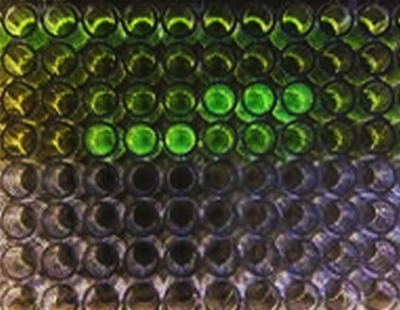New EU funded technology could improve inflammatory bowel disease diagnosis

A new project, IBDSENSE, aims to improve diagnosis and monitoring of inflammatory bowel disease to develop a much-needed non-invasive test for debilitating conditions such as Crohn’s disease and ulcerative colitis.
The IBDSENSE team has received €2.5m from the European Innovation Council (EIC) and will use technology developed by the Institute for Regeneration and Repair Chemistry Hub team, led by Professor Marc Vendrell and Dr Gwo-tzer Ho (Centre for Inflammation Research).
With over 3.7 million people affected in the EU alone, inflammatory bowel diseases (IBD), like Crohn’s disease and ulcerative colitis, have become a major public health challenge in recent years. IBD causes inflammation of the gastrointestinal tract and currently has no cure. IBD diagnosis and monitoring techniques have traditionally relied on invasive methods such as colonoscopies and tissue biopsies, which can be unpleasant for patients.
However, IBDSENSE aims to meet the strong demand for non-invasive technologies and improve the overall patient experience for those with IBD.
The IBDSENSE project will investigate non-invasive technologies to improve IBD diagnosis and monitoring. This will in turn provide better treatment choices and personalised care for patients.
IBDSENSE is a novel fluorescence-based technology that can measure the activity of the enzyme Granzyme B (GzmB) in patient biosamples. GzmB is secreted by T cells, which are key effector cells in IBD, and its activity has been directly linked to inflammation in the guts of IBD patients.
This new chemical diagnostic technology was developed by the IRR Chemistry Hub and in a project that started over 7 years ago, with the PhD studentship of Dr Jamie Scott, who is now the Technology Lead of the project.
Professor Vendrell and Dr Ho have assembled a high-quality team of scientists to develop prototypes for clinical and at-home testing and to generate a credible business plan that it is hoped will lead to the formation of a spin-out company.
The team of scientists has already tested more than 100 clinical samples from IBD patients with promising results, raising hopes for the development of this new technology. The team will involve patients from existing IBD clinical trials.
The three-year IBDSENSE project promises to create broad social, economic, and patient benefits by improving IBD diagnosis, facilitating disease monitoring, and accelerating personalised treatments.
In a recent survey that the team conducted with Crohn’s Colitis UK, 84% of responders said their disease was not under control and needed better diagnostic monitoring. One respondent remarked that “regular monitoring for people who have come off medication is needed.”
This new non-invasive technology has the potential to transform the lives people living with IBD, bringing much-needed relief for patients and making it easier to monitor disease progression and response to treatments.
“The success of IBDSENSE is a clear example of the strong ecosystem we have in the IRR Chemistry Hub and the Centre for Inflammation Research, where technology developers and clinical end-users work together to foster innovation in areas of unmet clinical need.”
Professor Marc Vendrell, IRR Chemistry Hub Lead, Centre for Inflammation Research
“We are delighted to receive this funding from the EIC as we pursue the development of novel diagnostic technologies for IBD. The funding will allow us to bring a new medical technology to the market, which should help to improve patient care in IBD and lessen the burden on healthcare systems.”
Dr Jamie Scott, Chemist and Technology Lead of the IBDSENSE project, Centre for Inflammation Research
“It’s incredibly exciting to see how chemistry can come together with gut science under the same roof to bring about a new test that could change how we manage inflammatory bowel disease.”
Dr Gwo-tzer Ho, Clinical Lead for the IBDSENSE project, Centre for Inflammation Research
For more information on IBDSENSE, please contact Professor Marc Vendrell.



